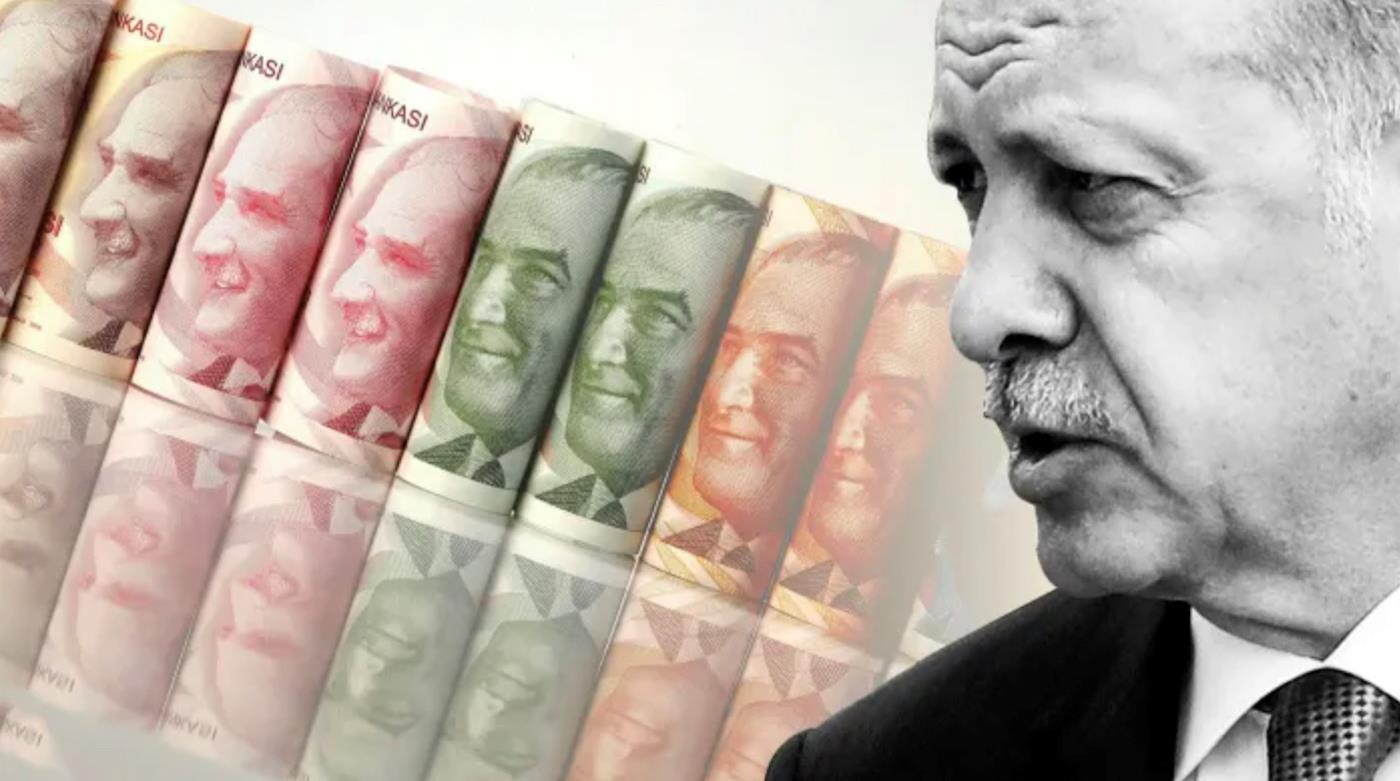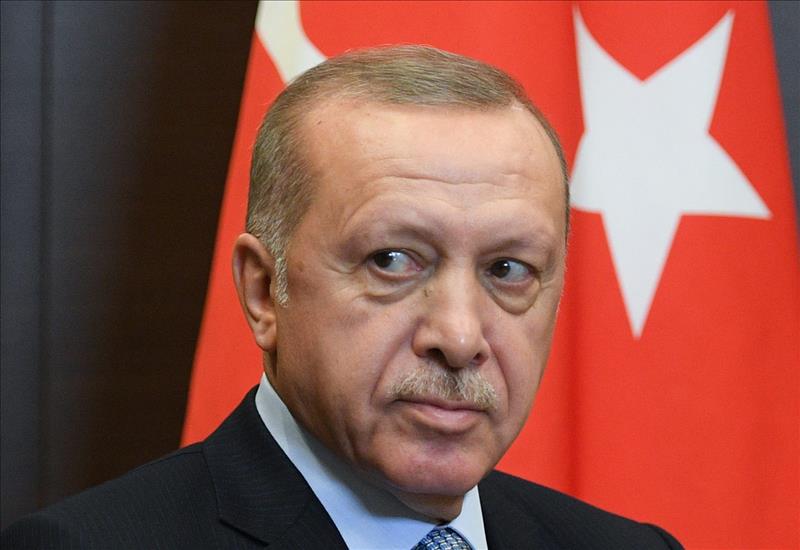Turkish Erdogan strong abroad and weak at home
[ad_1]
(MENAFN – Asia Times) As Turkish President Recep Tayyip Erdogan prepares to meet his American counterpart at the NATO summit on June 14, the leader may wonder how far his country has come since taking office. almost two decades ago.
Initially booming through years of robust economic growth, Turkey’s foreign and security policy has also shifted from defensive to assertive, Eurocentric to regionally engaged. Ankara has also put boots on the ground in Syria, Iraq, Libya and even Somalia, while Turkish military equipment is now coveted from Saudi Arabia to Poland.
Indeed, US President Joe Biden will probably also have to take into account that even the United States is now looking to Turkey for military support, including managing the Afghan airport in Kabul to cover the ongoing withdrawal of the United States. American troops.
Also regarding another key power, “ In three out of four theaters, Erdogan fought and defeated Russia and / or its proxies, ” Soner Cagaptay, author of A Sultan in the Fall and director of the research program Turkish at the Washington Institute for Near East Policy, told Asia Times.
At the end of last year, Turkish drones helped the Azerbaijani ally to reclaim the Nagorno-Karabakh enclave from the traditional Russian ally, Armenia. Turkish military might also helped the Libyan Government of National Accord (GNA) defeat Russian mercenary forces and their Libyan allies in 2019.
Meanwhile, Turkey’s own mercenaries – originally from Syria – fought alongside Turkish troops to gain control of large swathes of that country, despite opposition from Russia’s allied Bashar Al-Assad regime. .
On a fourth front, too, Turkey has supported Ukraine, rejecting Russia’s annexation of Crimea and offering to sell its combat drones to Kiev. Surprisingly, Ankara was able to do all of this as Erdogan maintained good relations with the autocratic President of Russia, Vladimir Putin.
Turkish President Tayyip Erdogan and his Russian counterpart Vladimir Putin in 2017. Photo: AFP
Yet despite all these foreign policy successes, “If there were an election today, Erdogan would surely lose,” Professor Muzaffer Senel from the Department of Politics and International Relations at the University of London told Asia Times. Ankara Medipol.
Indeed, while Erdogan can claim success abroad, his national record is less accomplished. His Justice and Development Party (AKP) saw its support drop from 42.5% in the 2018 parliamentary elections to 26.5% in an Istanbul Economics poll in April.
A single problem continues to drive this descent of opinion polls. “The economy – that’s Erdogan’s Achilles heel,†Cagaptay says.
With the Turkish currency having lost 26% of its value since the same period last year, youth unemployment at 25% and large industries such as tourism and manufacturing industry impacted extra-negatively by the global pandemic, popular dissatisfaction with his government is growing.
To meet these growing economic challenges, Ankara will need the help of foreign lenders and investors. Yet many of them turned away from Turkey because of Erdogan’s unconventional economic ideas.
Left unresolved, however, these issues at home can impact Erdogan’s actions abroad.
“If the economy collapses – and shows signs of weakness,†Cagaptay adds, “Erdogan cannot continue to play east against west and north against south. “
The United States which could be essential in helping Turkey out of its economic slump, making Monday’s meeting with Biden an even more important key to Erdogan’s political survival.
Indeed, “If this meeting does not end in another financial shock,” Senel says, “that alone will be a success.”
Drones and diplomats
Turkey suffered two successive financial and economic crashes at the start of the 21st century, with its old political elite apparently having no idea how to turn the tide.
This provided fertile ground for the AKP, which came to power in 2002, promising a fresh start without the corruption and incompetence of its predecessors.
There followed a remarkable economic boom with an average annual economic growth of 7.2% from 2002 to 2007, when the AKP was re-elected with a large majority.

Pedestrians walk past an exchange office in Istanbul as the Turkish lira continues to lose value against major international currencies. Photo: AFP via NurPhoto / Diego Cupolo
After reorganizing its banking and financial sectors after the crises of 2000 and 2001, Turkey was also well placed to weather the global financial crash of 2007-2008, with GDP growth reaching 11.2% in 2011, according to figures from the World Bank.
Subsequent growth was also periodically strong – 8.5% in 2013, 7.5% in 2017 – but by 2018 a major downward trend had clearly started.
Turkey that year also fell out with the United States, with the threat of sanctions over a range of issues – from Turkey’s purchase of Russian missiles to the arrest of an American pastor – sparking a crisis. major monetary.
Support for the Turkish lira after that depleted central bank reserves, but did little to stop the fall in the long run.
Erdogan’s insistence that the way to fight inflation, which has been in double digits for the past four years, is to cut, not increase, interest rates has failed help.
When central bank governors disagreed with this, he fired them, destroying investor confidence in the bank’s independence and its ability to cope with price hikes.
The currency’s tumble thus continued into 2019, 2020 and now 2021, after Erdogan said on June 2: “It’s the interest rates that cause cost inflation in the first place,” pushing down of 4% the value of the currency against the dollar.
Yet the high interest rates – the base rate currently stands at 19% – are crippling for many Erdogan supporters.
Most businesses borrowing to grow – or just survive during the pandemic – high repayments can threaten bankruptcy.

Turkish President Erdogan is waging a lost economic war against the markets that bombarded his country’s currency. Image: Twitter
At the same time, “cheap credit to finance construction is what has helped the AKP gain traction in the past,” Erdem Aydin, of RDM Advisory, told Asia Times.
Keeping credit cheap is vital for large construction companies now closely tied to Erdogan’s presidential palace. Erdogan thus finds himself caught between the expectations of his supporters and those of international investors and lenders.
Given the size of the Turkish economy – it is now 11th in the world in terms of GDP at purchasing power parity – Erdogan will have to look to foreign institutions if the economy collapses further.
“It must be China or the United States,†Cagaptay says, “and I don’t think China would be interested. “
However, US support – likely in the form of the International Monetary Fund (IMF) – would come with conditions, which is why Erdogan has so far rejected the option.
Or at least that’s one of the reasons. Another is likely that an IMF bailout would be a stark reminder of where Turkey was when Erdogan took office all those years ago in 2002.
After the financial and economic crashes of 2000 and 2001, Ankara was forced to turn to the IMF for a bailout. Most likely, Erdogan – and his supporters – would rather not see this process come full circle.
MENAFN12062021000159011032ID1102256251
[ad_2]

